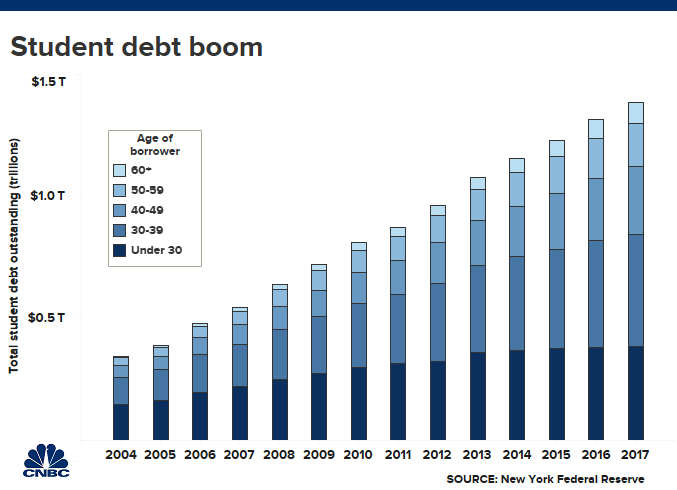How to spot a student loan scam
As many families deal with college financing this summer, the Better Business Bureau has reported an increase in fraudulent texts, emails and voicemails about loans.
The Federal Trade Commission says consumers who suspect that they're the target of a student loan scam should file a complaint at ftc.gov and contact their lenders directly. But to keep consumers from ever falling victim in the first place, CBS News business analyst Jill Schlesinger joined "CBS This Morning" Tuesday to share tips on how to spot a scam.
"These calls, or texts, or emails, they are promising to eradicate your student loans," Schlesinger said. "If you are sitting there with $30,000 worth of loans, that is going to catch your attention." She added that the scammers are especially active this time of year, targeting students who have just graduated or parents who are preparing to send their kids to college in the fall.
A lot of the calls reference "changes" between the Obama administration's rules and a new set of rules, Schlesinger said, and try to get you to pay money to get them to release the loans. If a consumer does call back, the scammers ask for credit card information and upfront payments.
"Paying any upfront fee – or even a monthly fee – is illegal," Schlesinger said. "That is your biggest red flag. You don't have to pay any more to change the terms of your student loans, you can do that directly with the government."
The scammers often also try to get you to divulge your federal student aid ID number, Schlesinger said. If they have the number, they can go into the federal system and change things – and they can also use it to further swindle you during future calls.
If you do fall victim to one of these scams, "take a deep breath," Schlesinger said. "There are a lot of places you're going to have to do some work: the FTC complaint line, so ftc.gov, the Consumer Financial Protection Bureau, the Department of Education... you [also] must go into the system and change that ID number that you have been assigned, because you don't want anyone messing with your file."
That doesn't mean that every loan service is a scam. "There are certainly private student lenders who are willing to look at your total loan portfolio, and perhaps refinance them… but they would never call like that, and they'll also never charge you an upfront fee," Schlesinger said.
If you are looking to consolidate or change the terms of your loan, Schlesinger said, you can go to the federal aid website. But she warned that changing the terms could mean paying for a longer time, and paying more interest – so it's worth being "very careful."
For a list of legitimate companies the Department of Education works with click here.
5 Ways to Spot a Student Loan Scam — NerdWallet - https://www.nerdwallet.com/blog/?p=157811 by @briannamcscribe on @NerdWallet
Avoiding Loan Scams | Federal Student Aid - https://studentaid.ed.gov/sa/node/920

Better Business Bureau’s top five scams targeting college students | News | parkerpioneer.net - https://www.parkerpioneer.net/news/article_9dfeebe4-b551-11e9-abcd-73cc644f694e.html

Better Business Bureau’s top five scams targeting college students | News | parkerpioneer.net - https://www.parkerpioneer.net/news/article_9dfeebe4-b551-11e9-abcd-73cc644f694e.html





